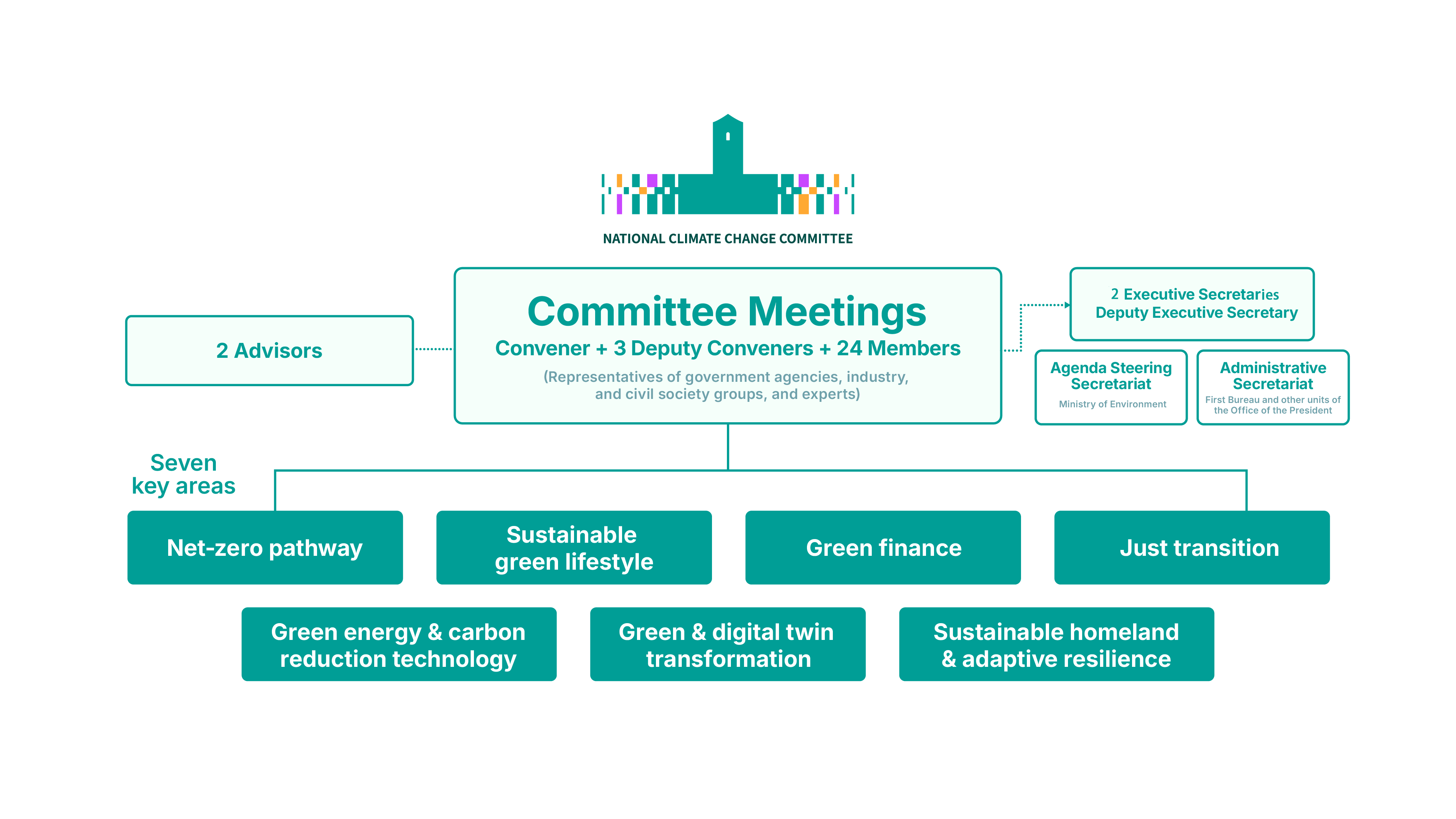National Climate Change Committee
 About the committee
About the committee
Origin and Tasks
At a press conference on June 19, 2024, the president announced the establishment of the National Climate Change Committee at the Presidential Office, the purpose of which is to actively address challenges posed by global climate change by promoting climate governance from a national perspective and furthering transnational cooperation. The committee gathers representatives from industry, government, academia, and research institutes to form a communication platform for developing national climate governance strategies, promoting key action plans, and enhancing climate resilience.
The National Climate Change Committee will in principle convene once every three months at the Presidential Office. It will undertake three main tasks: it will serve as a platform for social participation, a bridge for social communication, and an engine for policy effectiveness, through which it aims to foster social consensus and put that into action, steadily promoting national green growth strategy.
Organization Chart
The committee shall consist of 28 members, with the president serving as its convener. There are three deputy conveners. Representatives of government agencies, industry, and civil society groups, and experts constitute the remaining 24 members. The committee shall also appoint two advisors. Members and advisors are appointed for a one-year term, with the possibility of reappointment or new appointments as necessary. Government officials and representatives from various sectors of society may be invited to attend meetings as non-voting participants.
The committee shall have two executive secretaries and one deputy executive secretary. The Ministry of Environment shall serve as the agenda steering secretariat, while the First Bureau and other units of the Office of the President shall act as the administrative secretariat.
The committee holds discussions in seven key areas: net-zero pathway, green energy and carbon reduction technology, green and digital twin transformation, sustainable green lifestyle, just transition, green finance, and sustainable homeland and adaptive resilience.




